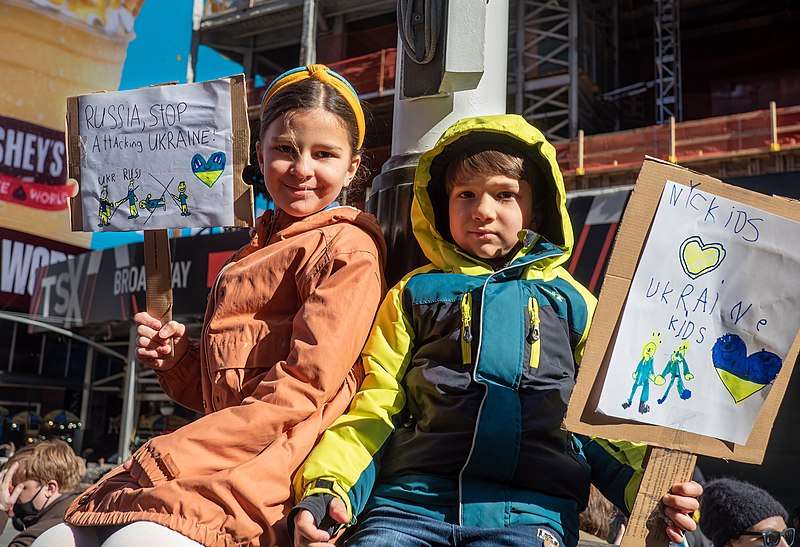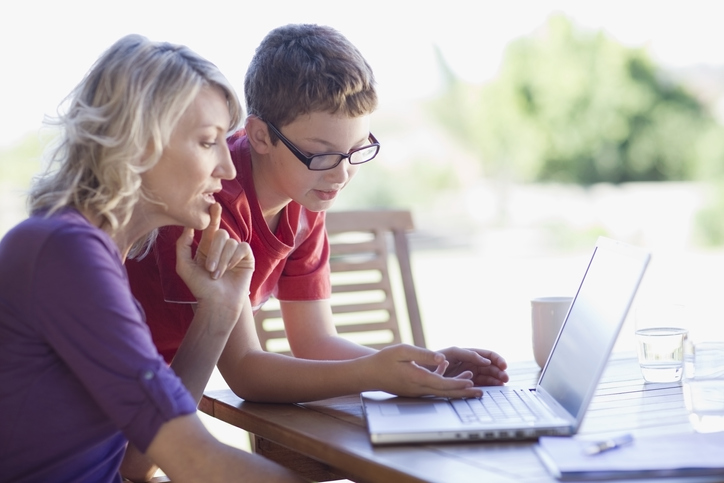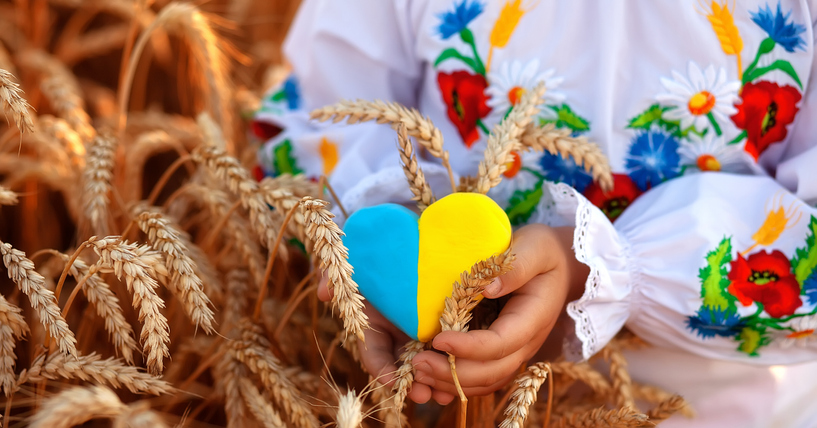How to Talk with Kids About War: Pointers for Parents

How Do I Explain War to My Kids?
The ongoing Russian invasion of Ukraine has dominated the news streams and social media with images of violence and outrage. The events in Ukraine can cause anxiety and fear in young children and teens, now that kids have more access to online information than ever
So when a 7-year-old asks her mother, "Are we going to be bombed?” or your kids start to worry about things like World War III or nuclear weapons, it can feel impossible to assure them that “everything is going to be alright.”
With so much chaos around, many parents are wondering, how can I explain what’s happening in Ukraine to my kids?
Don’t Shelter Your Kids From The Reality of War and Conflict
It's painfully difficult to talk with children about war. And given kids' access to media, it's almost impossible to protect them from frightening and confusing world events. However, while your instincts may be to shield them from all the bad events in the world, kids today will find out this information somehow whether that’s from their friends, teachers, or sites like TikTok and YouTube.
It’s important for parents not to dismiss children’s curiosity and anxiety about world events. Take them seriously, and discuss what they’re seeing and hearing on the news together. By monitoring what they watch and read, you’re able to help kids avoid false sources of information that could be making their anxiety and fear of war even worse.
Listening to Children’s Concerns Without Making Them Worse

What we say to our children depends on their age, the questions they ask, and our own political and moral beliefs. Whatever we feel about what's happening in Ukraine and other countries, we want to encourage children to continue to be curious about the world, to value peaceful resolutions to problems, and to feel free to come to us with questions and concerns.
General Guidelines for Explaining War to Children:
- Try to find out what your children already know about the war situation, and how they found out about it.
- Let them know that you understand that what is happening with the war is confusing and complicated.
- Let them know you're glad to be talking with them about it. Share whatever your opinions and feelings are about bombings and attacks in the war. Allow your children to express their own opinions.
- Ask your children if they are worried and/or frightened about war. Even if they say, "No," you are giving them permission to have those feelings and to talk about them if they choose.
- Whatever our feelings were about Putin and the Russian-Ukraine conflict, our children should know that their Russian classmates or other citizens are not bad people. Similarly to how in the U.S. parents should not demonize all Arabic people or Muslims are bad people after 9/11.
- This is a good opportunity to debunk stereotypes. Little kids are used to seeing the world in black and white or good vs. evil. However, real-life wars aren’t a Disney movie, so you need to be careful not to villainize other cultures and countries.
Kids' feelings are real and the distress they are feeling is perfectly normal. Make sure you validate your kids' feelings and empathize with them through statements like “It can be scary to hear about wars, and many adults right now feel scared too. But we will get through this together.”
Limit Media and News For Kids Younger Than Five
While kids in elementary and middle school are able to participate in productive conversations around big topics, explaining war gets tricky when dealing with young children, especially kids under five. Be mindful of how you talk about violence and war in the news around your children, especially with other adults. If your kids see you upset or angry, it only reinforces their own worries.
Very young children can't always verbalize their anxieties, but they may express them through things like crying or refusal to go outside. Too much anxiety can also lead to things like nightmares or wetting the bed if this distress is not addressed. Children under 5 should only get very limited information on the topic of war and the Ukraine and Russia situation. It’s often best to break things down into basic terms like, “Countries are very angry with each other at the moment and are fighting.”
You’ll want to provide positive reassurance that they themselves are safe and secure. Focus on things your kid can control at the moment. Rather than making large, vague statements about the war stopping eventually, try something like “Tomorrow we’ll go to school, then we’ll go play soccer after, and have meatballs for dinner.”
Giving young kids a routine enforces a sense of normalcy for them that prevents them from constantly seeking reassurance for what happens in the future.
Encourage Giving Back and Helping Others

Volunteering and helping others is also a great way to give kids a sense of calm and control when talking about a crisis. When kids hear about all the fighting and terrible things happening internationally, they may get an overwhelming sense of guilt or panic that they need to help solve all the world’s problems themselves.
Instead of letting your little one be overwhelmed, parents can turn major world events like the invasion of Ukraine into an opportunity to learn and give back together. Here are some ways that kids can give back and feel like they’re making a difference.
- Raise money for aid organizations through crafts or fundraisers
- Children can write letters to veterans or send care packages to support military members and their families
- Volunteer for organizations like Unicef, a humanitarian organization focused on helping children in crisis gain access to clean water and food.
One of the most wonderful things about children is that they love doing positive things for others and making a difference. As terrible as the global situation right now, seeing people coming together to lend a hand is inspiring and teaches both adults and children that there is hope.
—
More useful resources n on how to talk to kids about tough subjects like war and violence:
Our guide by the Educators for Social Responsibility: Talking with Children About War and Violence in the World.
Teachers can also reference TeacherVision's: How to Talk with Students About the War in Ukraine.

